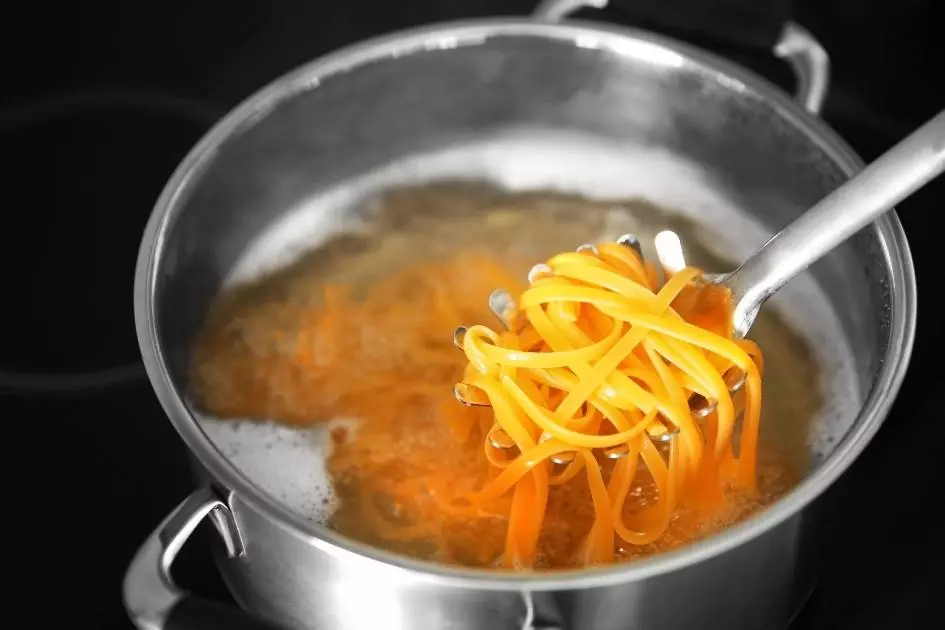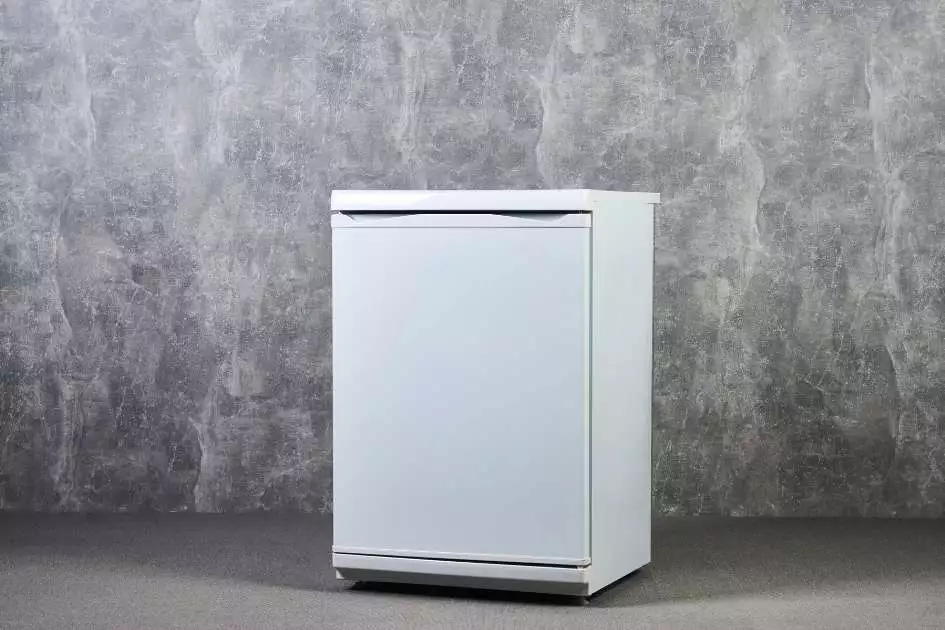When you cook pasta for a too short period of time, it becomes undercooked. This can be a frustrating problem when you're hungry and ready to eat! But don't worry - there are a few things that you can do to fix your pasta without having to cook it all over again. In this blog post, we will discuss some quick ideas that will help get rid of the mushy texture and make your pasta more enjoyable during re-cook.
How to Decide If Pasta is Overcooked or Undercooked
Home cooks often struggle to identify whether or not pasta is over-or undercooked, which can threaten the safety of their dish.
As with most cooking, there are no hard and fast rules that determine when pasta is done - though many recipes do give firmer ranges than "soft" or "al dente." Pasta is ready when it reaches the desired consistency, based on how much time you have to cook. Pasta that is cooked just enough to be firm and chewy is considered al dente, while pasta cooked for too long will be limp, sticky and no longer retain its shape.
It is typically cooked for 12-14 minutes. You can find the cooking instructions on the pasta package, and they will tell you how long to cook your pasta. If you are unsure if your pasta is over or undercooked, there are a few things that you can do to check. One way to test if it is undercooked is to throw a little cold water on it. If it sticks onto the surface of the pasta and makes a mess, then it is still cooking and should be left alone.
If most of the water runs off, then it's likely overcooked. You can try piercing one of the pieces with a fork and taste it - if it feels very soft, or feels like rubber or dough when you chew it, then your pasta may be overcooked. If the pasta is still cooking and you don't want to wait any longer, consider adding a little oil or butter to remove some of the friction between the water and noodles as they cook, which will help speed up the process.
Undercooked pasta will be more rigid and more rubbery than pasta cooked al dente. However, if your pasta is harder than what tastes good, consider checking out our quick fix below to fix undercooked pasta!
Fixing Undercooked Pasta
If you find yourself in a situation where you are not sure if your pasta is undercooked, don't be afraid to try out some of the fixes below! You'll feel much more confident in cooking and eating.
Reboil the Pasta
After you've cooked the pasta for a little time, or if it's undercooked when you make your dish (by any amount), do not be afraid to add more water and reboil them. The second time around, your noodles should cook in less than half of the cooking time that they would have originally taken during their first boiling.
Don't forget to re-drain the noodles before you add them to your dish! This will help prevent your noodles from being too soggy. You can use a pasta pot with a strainer lid if you're worried about your noodles spilling over. The water will also help cook your vegetables or meat and create a sauce when you do this.
Add in Some Extra Flavour
If you find your pasta still tasting a little too raw, it's time to add some flavor! You can try adding salt and pepper or even cut up pieces of ham or bacon. If you're worried about the meat being undercooked (which is usually not an issue), cook them on the side and add them after cooking the pasta.
If you still feel your noodles tasting bland or undercooked, be sure to season them with some extra spices! Try some oregano, basil, rosemary or thyme - they'll add flavor without making your dish too salty.
Add Oil or Butter
Butter is great for making pasta taste rich, but many people find that they don't like dishes with an oily texture. If you want to try butter, stir it in after the pasta is done cooking - this will help keep some of that oil inside so your dish isn't too oily.
Adding a little bit of butter or oil to your pasta will help it cook faster and create a better-tasting dish. If your pasta is undercooked because it's been sitting around for too long, try adding some oil to stop the noodles from sticking together when cooking! This also helps with their texture after they're cooked through as well - if you use a little too much water and the pasta is mushy, try adding butter to stop that from happening.
If you don't eat butter or just find yourself short on time, feel free to use olive oil! This has a lighter flavor and won't make your dish too greasy.
Add Some Sauce
If your dish requires a sauce, try adding some to the noodles when they are still hot from boiling or reboiling. This will help expedite the flavor and make it more enjoyable! Also, if your dish is very dry, a sauce will help to add some moisture.
If you're looking for an easy way to spice up your noodles without adding anything else - try using fresh minced garlic or chopped basil! These simple flavours can really make a difference in the flavour of your pasta and they won't take much time at all before it
Try Re-cooking in the Oven
If your noodles are cooked but still a little too raw, you can try re-cooking them in the oven. This will take much less time than boiling again - it should only take about five minutes to reheat and soften pasta when using this method. Since every oven is different, you'll want to try it with a small batch first before rolling out your entire dish.
If the pasta is still cooking and you don't want to wait any longer, consider adding a little oil or butter to remove some of the friction between the water and noodles as they cook, which will help speed up the process.
Replace the Water
Many people mistakenly believe that if their pasta is undercooked, they should use more water to boil it. This is not the case! If you have already boiled your pasta and are using a pot with boiling water, try adding cold or room-temperature water to help get rid of any scalding hot spots that may affect the texture of your noodles.
Season with Extra Spices
If you find your noodles tasting bland or undercooked, be sure to season them with some extra spices! Try some oregano, basil, rosemary, or thyme - they'll add flavor without making your dish too salty.
Set your Timer
Overcooked pasta is a worse problem than undercooked pasta. A good rule of thumb is that the amount of time it takes to cook a small, dry block of your favorite type of pasta should be about half the cooking time for a large pot full. And if you're in doubt? Just set your timer!
If you're not sure how long your pasta should cook, set a timer of 5 minutes intervals. Check on it, and you'll get a good idea of how long your pasta should cook. When reboiling again with room-temperature water, 1-2 minutes should be enough for the noodles to cook if you like it al dente. If you want a little mushy and soft, don't boil for more than five minutes.

Final Thoughts
So there you have it - a handful of tips on how to fix undercooked pasta! It might sound like a lot, but remember that most of these should be used as last resort solutions.
We're all human, and accidentally undercooking some pasta is bound to happen occasionally, especially if you had a tiring day dealing with kids or doing simultaneous tasks.
If that sounds like you, don't worry! As long as you are following these tips and only using them when needed, your pasta will be perfect again in no time at all. And lastly, don't forget that the best way to avoid an undercooked meal altogether is by setting your timer - because no one wants mushy noodles.


